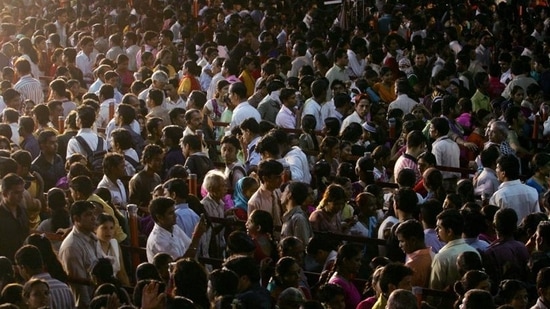Choice not chance: Benefits of population empowerment
This article is authored by Indira Behara, public health expert, Global Health Strategies, New Delhi.
July 11 marks World Population Day. Understandably at over eight billion (and according to the United Nations World Population Prospect’s study, by 2080 that number will rise to over 10 billion), with different countries, and in India, even different states, presenting different growth pictures.

Population growth is assessed by the total fertility rate, or approximately interpreted, the number of children a woman has in her lifetime- 2.1 is the replacement rate (which means that is the number by which (without migration) a population stays stable with deaths being replaced by new births. If we go above that, it’s a cause for concern, because, of course, that’s a burden on resources and brings with it many socio-economic and health challenges. But if we go below that number, it is also a cause for concern, because there are countries in the world that are looking at rapidly ageing populations (that are living improved life spans), whose economies will face labour supply crunches and thus the costs of dwindling supply, a change in consumption patterns, and their health systems, the (very expensive) pressures of chronic disease management, to name a few challenges.
But central to the brouhaha about demographics is the need for access to reproductive health services and rights. As I firmly believe, women are at the core of humanity’s quest to find solutions to enable well-being and help everyone thrive. Ensuring women (and their partners) have access to modern contraceptives is the key to unlocking a host of health, social and economic benefits for our people. It has the potential to save lives as it helps women and men decide when and how to start or grow a family. It allows them to have children by choice and not chance.
In fact, given how important women’s access to reproductive services and information (including to contraceptives) are for our emancipation and empowerment, we must talk about it openly, not in hushed tones. As girls and then young women navigate their academic and then their professional lives, it is important to give them the information and tools they need to understand how their bodies work, to help them pursue their dreams. As they get older and become sexually active (which taboo as the topic may be, it is a truth of life), they must know how to plan their lives so that they can stay in their academic programmes, and in the workforce and grow. Access to contraceptives would help women avert unintended pregnancies--which in low- and middle-income countries make up ~49% of all pregnancies. A 2020 Guttmacher report suggests that if maternal and child health services in line with World Health Organization recommendations: Unintended pregnancies would drop by 68%, unsafe abortions would drop by 72% and maternal deaths would drop by 62%. Unintended pregnancies are often contributing factors to poorer maternal and child health outcomes. Teenage pregnancies for example, contribute girls and young women dropping out of their educational journey around the world. They also interrupt our professional lives, with antenatal, deliver-related, post-natal and then child care all coming with a direct and an opportunity cost. Estimates suggest every $1 invested in access to family planning services yields $120 to the economy. When the oral contraceptive pill was introduced and widely taken up, studies revealed that it meant women attained higher educational levels, their wages grew, their families were healthier and less likely to fall prey to poverty; their children were more likely to be educated and go on to fare better economically.
Access to the information and method that suits each our different bodies best, means we and our families are able to live our best, healthiest and most economically productive lives.
Several tools exist, from pills (hormonal and non-hormonal) to IUCDs i.e. intra-uterine devices, condoms for men and women, and now longer acting injectable and tiny implants as well that give women the ability to prevent pregnancies for up to three years. Most of these are offered in the Indian public health system as well. But barriers to access still exist, whether they come in the form of low awareness, misconceptions of the side-effects, a lack of agency and autonomy due to cultural norms on the demand side, or supply side issues related to provider unavailability, or their biases and supply chain issues. While technology is not a silver bullet, it can certainly augment our solutions. Whether it is using digital media and Artificial Intelligence to put out targeted information based on demographics and geographical needs, or it is creating tools that can help guide health providers/workers and individuals toward the most appropriate contraceptive choice for them (chatbots exist and should be promoted widely), even gamification for consumers to get comfortable with different methods; or for health facilities to collect and analyse data and project supplies based on their populations’ preferences and needs; they could potentially collaborate with delivery apps to enable doorstep delivery of products and services and use these apps (where smartphones are available) to send discreet reminder notifications to place (or better cancel) orders.
Demographic numbers aside, access to modern contraceptive methods has to be on the core priority list of all emerging economies. It is a women’s health and rights issue. Family planning or modern contraceptive information and services when provided in a widespread and contextually relevant manner, instead of focusing on control can help people and particularly women realise their agency, their autonomy and empower them. Women, and men, must be made aware that when they have children by choice and not chance, they unlock intergenerational health, social and economic benefits, that can change the trajectory of their families for generations to come.
This article is authored by Indira Behara, public health expert, Global Health Strategies, New Delhi.





